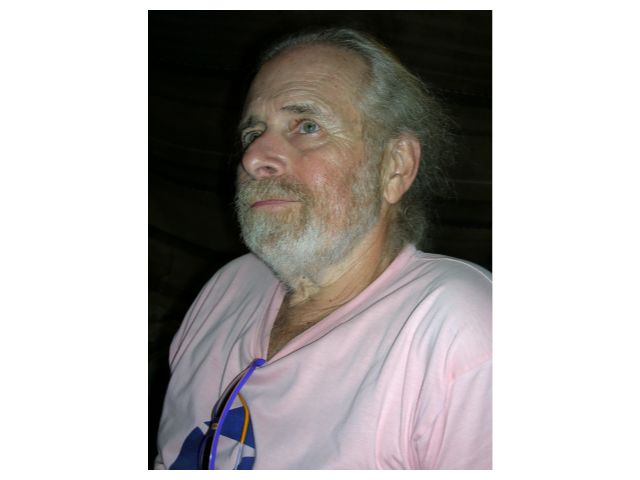It is known to the political and economic plutocrats running and ruining out country, but not to working- and middle-class citizens.
Easy to see Americans as both consumers and citizens (let's ignore illegal immigrants). My point is that most Americans spend a very large fraction of their lives as consumers and hardly any part as citizens. Here is the issue: Should activist (or at least verbose) dissenters urge Americans to use their role as consumers to achieve political and economic justice?
Recall that after 9/11 President Bush and other politicians urged Americans to keep shopping, to keep spending money as a patriotic duty. Clearly their view was that being a good American in the face of terrorism meant being a good consumer. It revealed a deep fear of power elites, not of terrorists, but of American consumers.
Personally, I do not condemn Americans who do not vote. Voting in our current system is hardly justified in light of the two-party duopoly and a pervasive political culture of lies and propaganda. I usually feel more respect for a thoughtful non-voter than a lesser-evil voter. What unites Americans is their consumerism. And the genius of the economic and political power elites that run the country is that they have managed to create and maintain obsessive consumerism that drives the economy while keeping consumerism apolitical. Meanwhile, Americans do not vote in large numbers and, for the most part, are too distracted to be politically active.
My hypothesis is that the most potent political power of Americans to provoke major reform is not through their votes anymore, but as consumers. That means as spenders ? not just consumers of things, but also as consumers of services and borrowed money.
To put fear into Democratic and Republican politicians we must talk seriously about a movement to curb consumer spending ? actually to control it, to develop the capability to turn it on and off to obtain political victories. Doing this will scare the crap out of political and corporate elites. In today's world, turning consumer spending down is better than votes or bullets to obtain long overdue political and economic reforms.
This requires convincing ordinary, hard working and debt ridden Americans to curb their spending and increase their saving at critical times. In other words, to get Americans to NOT act like their government that keeps things rolling along by excessive, wasteful spending and borrowing.
Consumer spending must be made a political tool by which to obtain political and economic concessions ? to fight the plutocracy and the economic inequality it fosters. Now, consumer confidence betrays democracy. Unbridled consumer spending empowers and enriches the elites who punish the public with more economic inequality. Americans have been spending their way into economic hell, aided by credit-enabling instant gratification.
Curb spending, pay off debt, save for future needs. Sounds simple and yet, if executed by millions of Americans, this behavior has REVOLUTIONARY power. Power elites would condemn it as unpatriotic.
Can 10 to 20 million Americans gain self-control over their spending and borrowing? Can they delay gratification? Can they cut back on eating out, driving, buying fancy prepared foods, buying and renting videos and games, buying new cars, buying new clothes and other consumer goods? Can they delay domestic vacations, home remodeling and spa treatments? Can they say to themselves: I can help make America better if I curb my spending as a political act! Not spending money takes courage. Of course, I'm talking about discretionary spending of the middle 60 percent of people on the income spectrum, not the working poor or the rich.
I bet you that if this happens ? to even a modest degree ? elected Democrats and Republicans would become hysterical. Pictures would be painted immediately of a meltdown of the American economy. They would fear a hit to the economy even worse than what would result from more 9/11-type terrorist attacks and Katrina-type natural disasters. The plutocracy would have fits. Economic elites making up the top 5 percent of the population in terms of wealth would be phoning their political lackeys demanding action. There would be bipartisan calls for national unity and patriotic resumption of consumer spending. Imagine what faux-populists Bill O'Reilly and Rush Limbaugh would snarl.
Crisis management would be in full swing. Whoever is president would be on TV from the oval office condemning the traitorous cut in consumer spending and paint a picture of national disaster. Enlightened consumers would be called dirty names ? like socialists, lefties, commies, populists, progressives and ? best of all ? economic terrorists!
The Federal Reserve, sensing a hit to GDP growth, would probably lower interest rates to zero to get people to borrow, and banks would reduce interest on savings to get people to spend rather than save. The stock market would be crashing, and so people would be afraid to buy more mutual fund shares or regular stocks. [Of course, this would be the smartest time to invest as much as possible rather than consume.]
To frighten the public, the threat of millions of Americans losing their jobs would immediately be invoked by politicians and business leaders. But firing workers would, logically, reduce the ability of consumers to resume spending. Sounds like a real quandary for corporate America.
(Note: You can view every article as one long page if you sign up as an Advocate Member, or higher).





